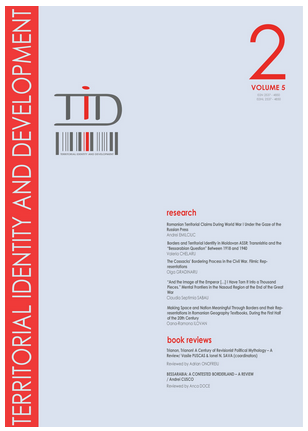ROA CLUJ: REKO TYPE SUSTAINABLE MARKETING NETWORK IN ROMANIA
ROA CLUJ: REKO TYPE SUSTAINABLE MARKETING NETWORK IN ROMANIA
Author(s): Kinga Xénia Havadi-NagySubject(s): Geography, Regional studies, Regional Geography, Environmental Geography
Published by: Universitatea Babeş-Bolyai
Keywords: Farm to Fork; Romania; short food supply chain; smallholders;
Summary/Abstract: The trend of sustainable consumption induces a change in the marketing strategies, applying a marketing type that promotes the culture of quality, and employs the principles of eco-rationality in choosing the tools of interaction with the consumers. The originally Finnish REKO (abbreviation of the Swedish “Rejäl Konsumtion”, meaning “Fair Consumption”) model of alternative food network (AFN) is a perfect example of implementing the principles of sustainable marketing. This survey focuses on ROA (Roade Online din Ardeal; Fruits/Harvest from Transylvania online), a REKO type direct marketing network, based in Cluj-Napoca, Romania. The aim of the study is to assess the chances and challenges of this type of AFN in the Romanian context. For this, we analyse the opportunities and impediments of development, and the cost and benefits of the AFN for the involved producers. The objective of the survey is to reveal the potential contribution of AFNs to sustainable production, marketing, and distribution of local products. The applied qualitative research is based on (1) an interview with a coordinator of the investigated initiative, (2) a survey among the involved producers, (3) participant observation as consumer, (4) informal discussions with the AFN stakeholders, and (5) secondary data analysis. As conclusions, we can state that Romania holds significant resources for the implementation of AFNs due to numerous favourable circumstances, such as the rising demand for qualitative local and regional products, and the willingness of consumers and producers to get involved in direct marketing networks. However, grassroot initiatives of direct marketing face administrative and legal challenges. The lack of real support of public policies, the weakly developed idea of self-government, and not firmly established in practice, confine the short food supply chains to a niche phenomenon.
Journal: Territorial Identity and Development
- Issue Year: 6/2021
- Issue No: 2
- Page Range: 5-24
- Page Count: 20
- Language: English

